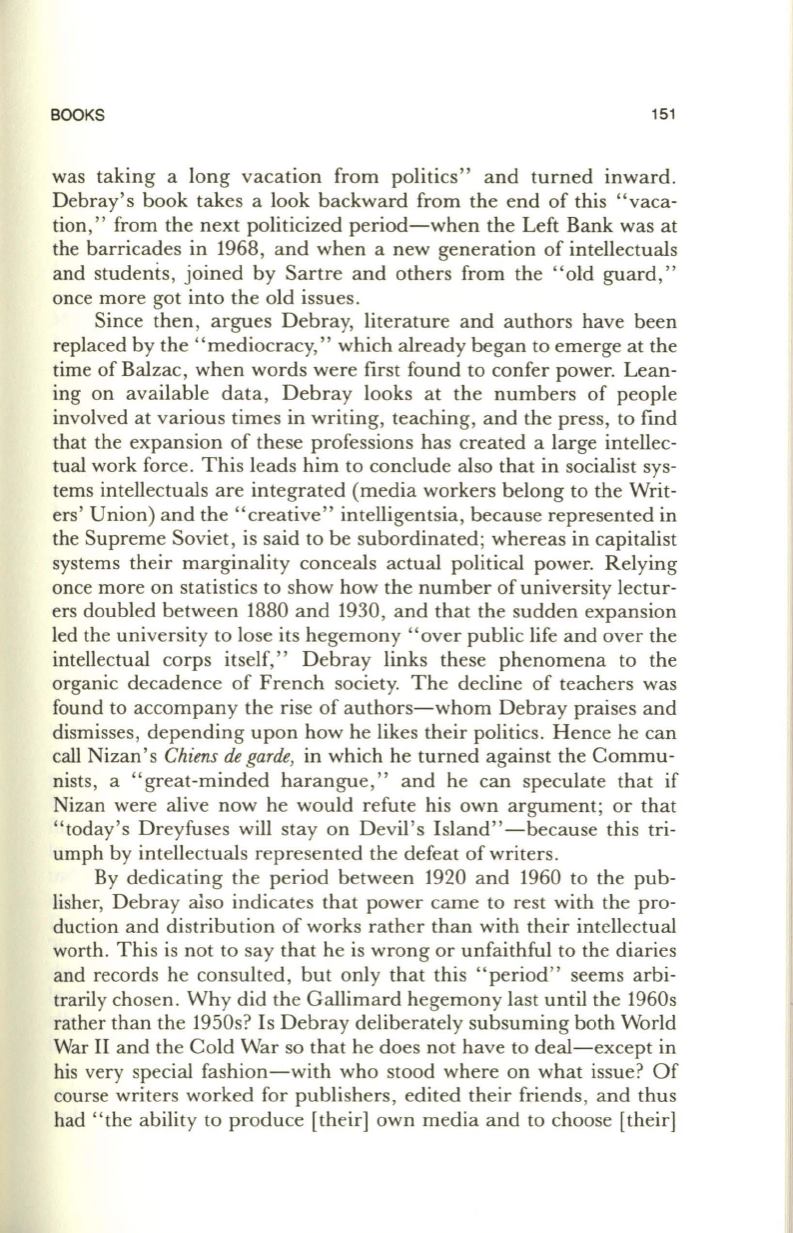
BOOKS
151
was taking a long vacation from politics" and turned inward.
Debray's book takes a look backward from the end of this "vaca–
tion," from the next politicized period-when the Left Bank was at
the barricades in 1968, and when a new generation of intellectuals
and students, joined by Sartre and others from the "old guard,"
once more got into the old issues.
Since then, argues Debray, literature and authors have been
replaced by the" mediocracy," which already began to emerge at the
time of Balzac, when words were first found to confer power. Lean–
ing on available data, Debray looks at the numbers of people
involved at various times in writing, teaching, and the press, to find
that the expansion of these professions has created a large intellec–
tual work force. This leads him to conclude also that in socialist sys–
tems intellectuals are integrated (media workers belong to the Writ–
ers' Union) and the "creative" intelligentsia, because represented in
the Supreme Soviet, is said to be subordinated; whereas in capitalist
systems their marginality conceals actual political power. Relying
once more on statistics to show how the number of university lectur–
ers doubled between 1880 and 1930, and that the sudden expansion
led the university to lose its hegemony "over public life and over the
intellectual corps itself," Debray links these phenomena to the
organic decadence of French society. The decline of teachers was
found to accompany the rise of authors-whom Debray praises and
dismisses, depending upon how he likes their politics. Hence he can
call Nizan's
Chiens de garde,
in which he turned against the Commu–
nists, a "great-minded harangue," and he can speculate that if
Nizan were alive now he would refute his own argument; or that
"today's Dreyfuses will stay on Devil's Island"-because this tri–
umph by intellectuals represented the defeat of writers .
By dedicating the period between 1920 and 1960 to the pub–
lisher, Debray also indicates that power came to rest with the pro–
duction and distribution of works rather than with their intellectual
worth. This is not to say that he is wrong or unfaithful to the diaries
and records he consulted, but only that this "period" seems arbi–
trarily chosen. Why did the Gallimard hegemony last until the 1960s
rather than the 1950s? Is Debray deliberately subsuming both World
War II and the Cold War so that he does not have to deal-except in
his very special fashion-with who stood where on what issue? Of
course writers worked for publishers, edited their friends, and thus
had "the ability to produce [their] own media and to choose [their]


